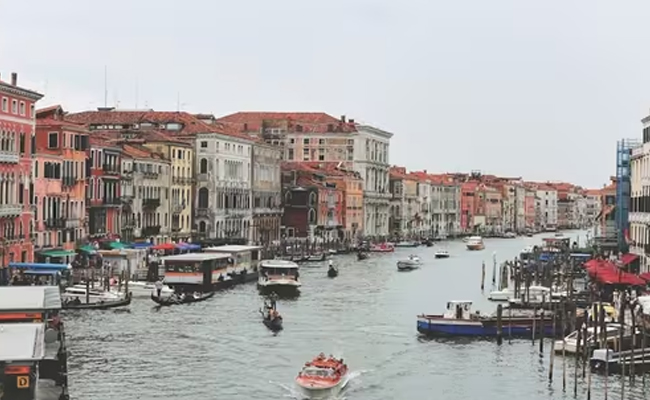Burhanpur (MP), Feb 14: More than 40 students complained of stomach ache after they were given iron supplement pills at a government school in Madhya Pradesh's Burhanpur district on Tuesday, an official said.
As many as 41 students of Class 6, 7 and 8 of the Government Middle School at Abhada village in Nepanagar tehsil complained of stomach pain and vomiting, Chief Medical Health Officer Pradeep Mojeph said.
The affected students were being treated at the district hospital and their condition was stated to be stable.
Let the Truth be known. If you read VB and like VB, please be a VB Supporter and Help us deliver the Truth to one and all.
In 2024, the global number of cars reached 1.475 billion, averaging one car for every 5.5 people. While cars offer convenience, they come at an environmental cost—each vehicle emits around 4.6 metric tons of carbon dioxide annually (U.S. Environmental Protection Agency). The combined impact of over a billion cars paints a grim picture for our planet.
However, a few cities around the world have taken a different path, opting to stay car-free. On World Car-Free Day, let’s take a look at some of these unique, traffic-free destinations:
Zermatt (Switzerland):At the foot of the Matterhorn, this alpine town has been car-free for decades. Visitors reach it by shuttle train, and within Zermatt, eTaxis, bikes, and free eBuses offer alternatives to cars.
La Digue Island (Seychelles): Known for its laid-back pace, La Digue is a car-free paradise. Bicycles and electric buggies are the primary means of transport, allowing visitors to enjoy the island's scenic beaches and wildlife without the hassle of traffic.
Venice (Italy): With over 400 bridges connecting its islands, Venice’s historic center is entirely car-free. Footpaths and canals define the city, which attracts millions of tourists each year.
Lamu (Kenya): This ancient Swahili town has banned cars, relying instead on donkeys and dhows for transportation. Its narrow streets, lined with centuries-old architecture, offer a glimpse into the region's rich cultural history.
Fes el Bali (Morocco): Fes’s medieval medina, a UNESCO World Heritage Site, is one of the world’s largest car-free zones. Its labyrinthine streets are often too narrow for even bicycles, preserving its authentic feel.
Ghent (Belgium): Since 2017, Ghent's city center has been car-free. A network of buses, trams, and electric boats provide eco-friendly transportation throughout this historic university town.
Hydra (Greece): Cars and bicycles are banned on this mountainous island, leaving walking and mule rides as the main modes of transportation.
Giethoorn (Netherlands): Dubbed the "Dutch Venice," Giethoorn lacks cars and roads. Canals and footbridges guide visitors through this picturesque village, offering a peaceful escape from modern transportation.
Yelapa (Mexico): Accessible only by boat, this tranquil village on the Bay of Banderas offers a glimpse of simple living, with no cars and a connection to nature.
These car-free cities remind us that it’s possible to live without the constant noise and pollution of cars, offering a cleaner, quieter way of life.





